
Shelagh Fogarty 1pm - 4pm
21 October 2022, 13:59 | Updated: 25 October 2022, 17:23
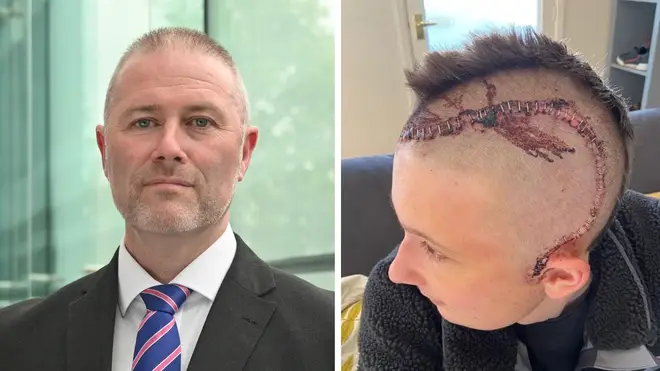
Police officers are suffering 'horrific mental scars' after being assaulted on duty, with thousands forced to take time off due to the stress of the job.
Police Federation chairman Steve Hartshorn told LBC that 37,000 physical assaults on police officers had taken place across England and Wales in the year ending March 2021, with figures expected to increase even further for the next year.
The onslaught of abuse has left many questioning why they stay in the force, he said.
"It’s horrific. It leaves a mental scar because you have a physical injury but you also have the mental impact which people don’t see," Mr Hartshorn said.
"Being hit, kicked, potentially shot at, spat at, coughed in your face when someone tells you they’ve got a really incredibly horrible disease…that makes you wonder.
"You don’t have to go to hospital because you’ve been bitten like I have, you don’t have to take a course of medication just in case it has some kind of disease be it hepatitis or HIV behind it… it leaves you wondering why on earth do we do this job when people want to inflict so much pain on you?
"It has an effect - it doesn’t ever go away.
"People underestimate that we are human beings, it does hurt and it’s unacceptable.
"It should never be normalised that it's acceptable to assault a police officer. It’s not acceptable to assault anybody but those who are trying to protect the public even more so."
He added: "[People] see the uniform and they forget that behind it we are mums, dads, aunts, uncles, cousins brothers sisters - we are part of the community."
Read more: Two Met officers charged after woman run over and killed by police car on 999 call
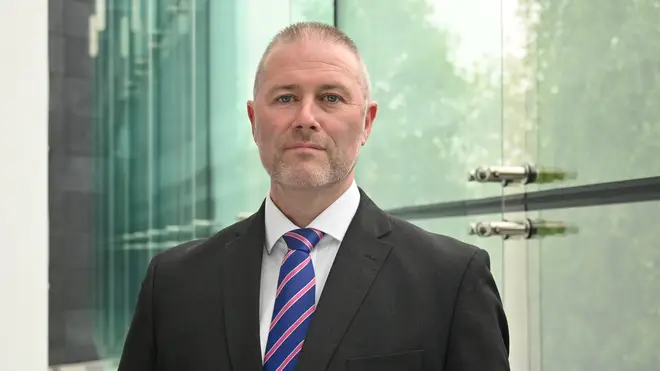
The extreme pressure on officers' mental health has resulted in more absences and consequently restricted forces even further.
Mr Hartshorn explained that dwindling force numbers meant people almost felt free to do what they want and the only way they know to deal with the threat of being arrested is to use physical force and assault colleagues.
"A recent FOI request showed that there'd been nearly a million days off due to mental health problems in the last year," he said.
"That’s 9% up on the previous year.
"Those start from physical attacks then become a mental health situation. That’s just not right.
"13,000 officers were absent due to stress-related illnesses in the last financial year – that’s a 10% increase on the year before that.
"The workplace should be safe for everybody. Officers accept that policing can be dangerous however it shouldn’t be that way.
"We should have enough officers to be able to deal with offenders safely so we can reduce and eliminate the assaults."
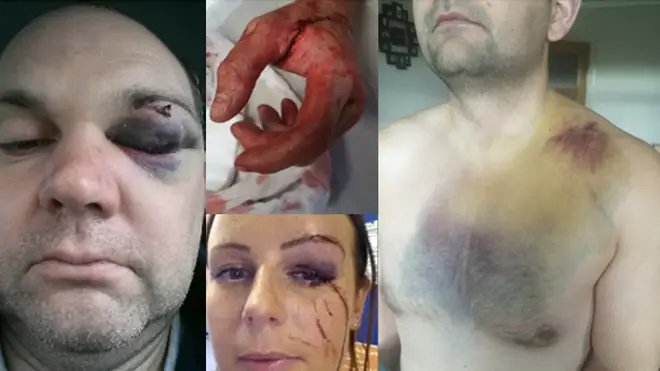
More officers are also leaving police forces as attacks became more frequent and insufferable.
"You reach a point where you’ve been assaulted so many times - and police officers have it far too regularly during their job – it must factor into the decision," the chairman explained.
"If you can get a job that pays as much with less risk and harm they’re going to go.
"There’s only so much you can take…it’s not just being a physical victim, it’s also witnessing your colleagues being assaulted and put in situations where they try to do their best for people."
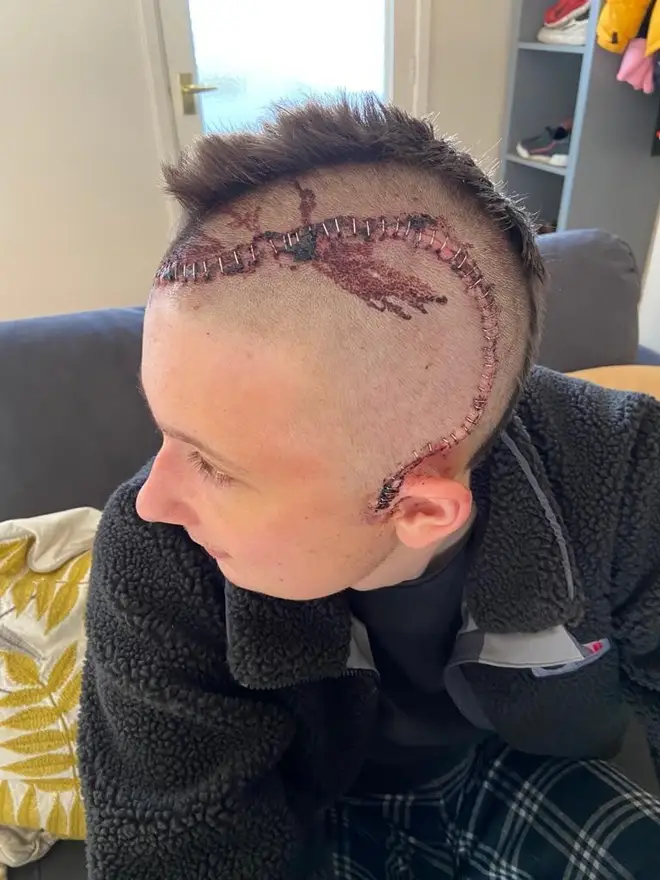
One example is PC Leo Clarke, 25, who works as part of the Cambridgeshire Constabulary.
He was left with a bleed on the brain after being attacked on duty and needed surgery as part of his recovery.
He was punched in the head last February – only returning to work on restricted duties 10 months later in December.
The attack unfolded after PC Clarke was called out to a house in Peterborough after a man became violent towards members of his own family.
The man, in his 20s, had missed a psychiatric appointment at Peterborough City Hospital that morning and walked to the address prior to speaking with a doctor.
He reacted angrily when PC Clarke activated his body worn video camera, grabbing and punching the officer.
He was arrested and later handed one year and eight months in jail in April last year after admitting causing grievous bodily harm (GBH) without intent.
PC Clarke told his force's podcast: "The doctors told me it was a bleed on the brain and left unchecked, it could cause a lot of damage.
"Luckily my skipper and colleagues saw something was wrong and got me to hospital early, that has helped me get back to how I am now."
He went on to say: "As the police we do a lot of jobs now, including mental health related ones.
"We’ve had to adapt as every service is stretched; for us it’s not just locking up bad guys anymore.
"One of the main things for police is life and limb – making sure everyone is OK.
"If we turn up, it doesn’t always mean you’re in trouble so don’t instantly worry and don’t take your anger out on us.
"We’ve got families as well we want to go home to, so it’s not fair.
"It might not be an ambulance turning up like you want, but we will get to where you need to and do our best to help you."
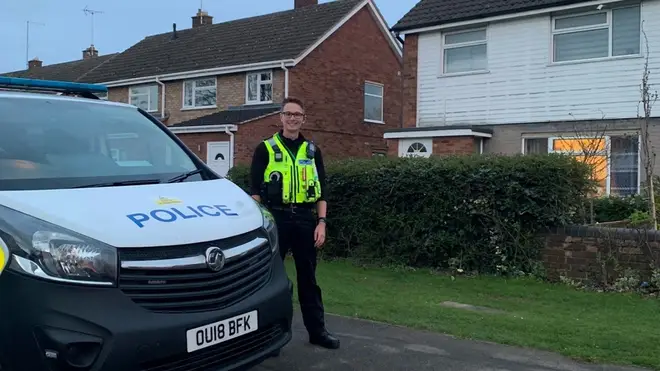
As the number of physical assaults continues to increase year-on-year, Police Federation chairman Steve Hartshorn believes the increased maximum sentence is still not enough to stop attacks taking place.
"If you look at the maximum sentence being doubled to two years it’s not having an impact because the figures clearly show you’ve got officers being assaulted," he said.
"37,000 fiscal assaults. It’s not having the impact we need so we need to look more at what the courts are doing and make sure they’re sentencing properly."
However, the short sentence is merely a "occupational hazard" for most criminals, Mr Hartshorn went on to say.
"If you’re dealing with people with criminal minds it’s almost like an occupational hazard.
"They’re going to be thinking 'Am I really going to get two years for assaulting a police officer? No.'
"If we’ve got criminals out there that are going to consider driving at a police officer – that amounts to murder - they’re not going to be worried about what might be a maximum two-year sentence.
"It’s part of the wider criminal justice process that we need more investment in."
Read more: Met officers admit they 'dread' policing Notting Hill Carnival as 74 hurt during event
The only way to stop attacks is to take on more officers to deal with crime and more detectives to investigate it, the chairman said.
And a new app, under the Operation Hampshire initiative, has been introduced for forces across England and Wales in a bid to track assaults on a day-to-day basis.
It gives an immediate representation of the danger colleagues are facing, which can then help shape training, Mr Hartshorn explained.
But there is resistance due to the "clunky" recording process already in place.
"If we’ve got more officers, we can attend other jobs with more colleagues available if we know it’s going to get violent and aggressive we can control the situation in a better way and more safely," he said.
"When you see on TV and newspapers that it took 10 officer to arrest one person it's because we’re trying to do it safely and control the situation for police officers, the public and the onlookers that are trying to get the next sensational piece of media trying to show there are 10 police officers doing a ‘really simple job’.
"It’s not that simple and I challenge anyone to walk in our shoes and do our job."